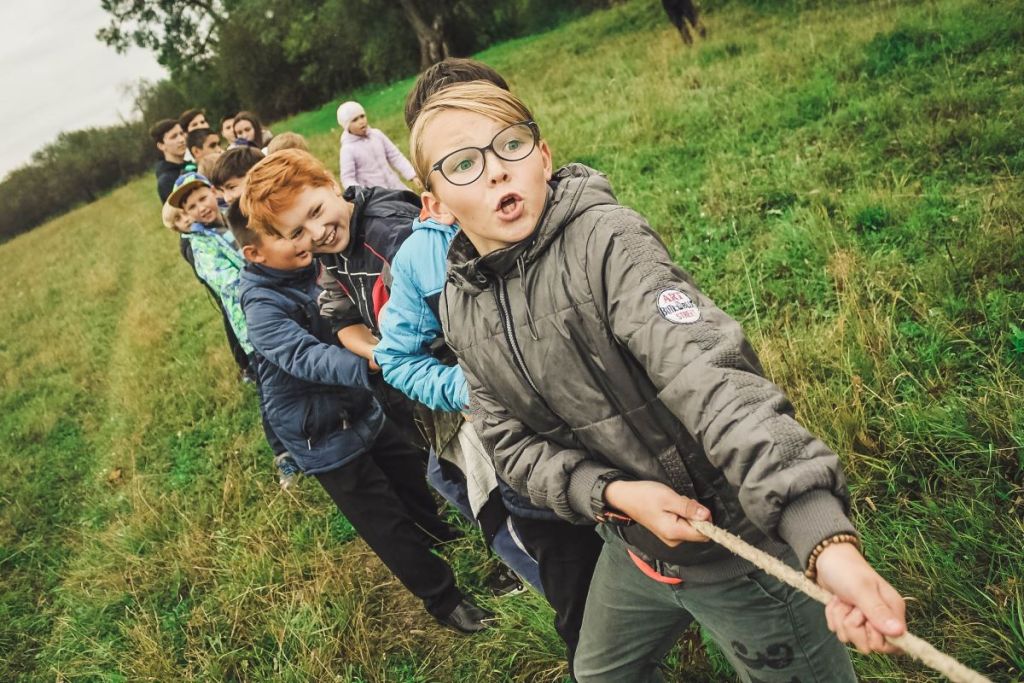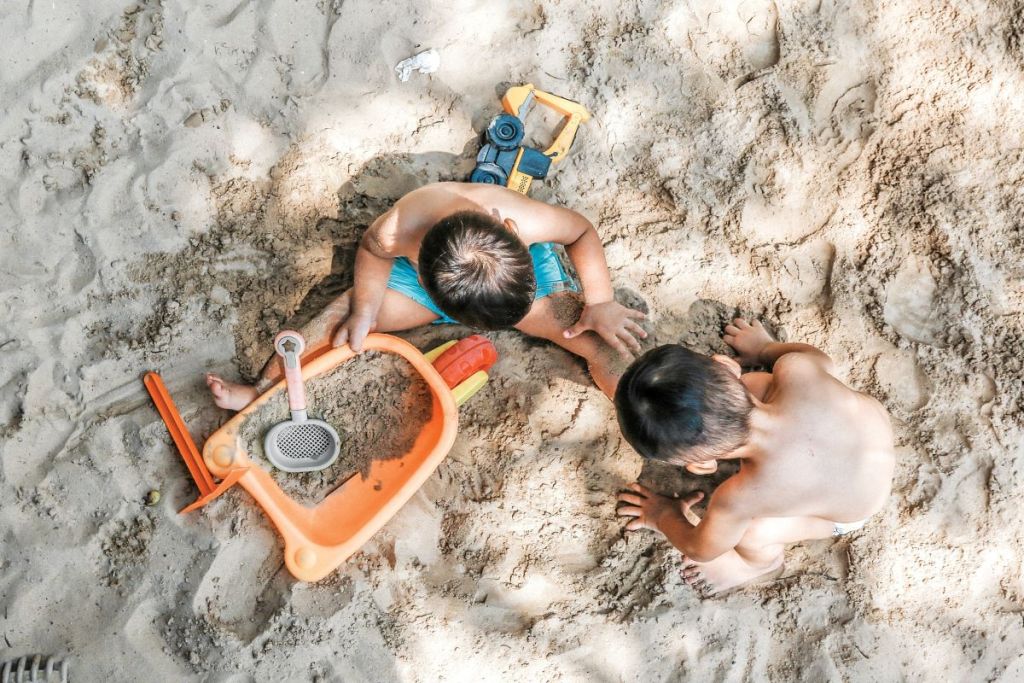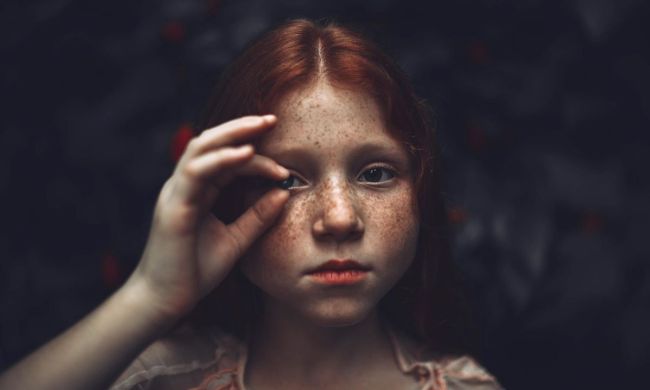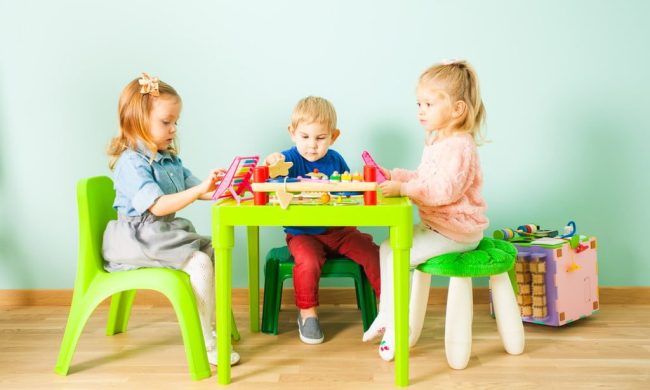Hide-and-go-seek, Red Rover, Tag, Kickball, and Capture the Flag. You might have heard of or even participated in these activities, and already, you can imagine a carefree environment where kids have their best time. Besides the fun, children benefit greatly from play. In fact, park and school playgrounds offer an outdoor classroom that provides great learning opportunities.
After all, play is more than a relaxing or time-consuming activity that’s better known as recess. The importance of play in child development is tremendous. Research shows us that both indoor and outdoor play gives kids the best start in developing their physical, emotional, cognitive, and interpersonal skills as well.
Are wondering how? We’ll give you more fascinating details about the benefits of play.

Gross and fine motor skills—important benefits of play
For starters, the importance of play in child development relates directly to children being physically active. It helps them to sharpen their balance, coordination, gross-motor skills (crawling or walking for example), and fine-motor skills, which are necessary for writing and hand coordination. Furthermore, active children who play outside enjoy better health, a stronger immune system, and more muscle strength. Activities, for example like climbing and swimming, build up core strength while running, jumping rope, and other fast-paced movements help a child to get a head start on optimal heart health.
Coping skills
While the physical benefits of play are visible as coordination develops, many psychological benefits occur as well, especially in the children’s emotional development. Whether your child is interacting with other children on the playground or indoors, play carries a very important role in his or her emotional growth. Three important skills and traits relate to playing and help children to develop the necessary tools for adolescence and adulthood. These include:
- The building of self-confidence and esteem
- Learning to deal with and appropriately express various emotions
- The release of emotions from disappointment or trauma
As you can see, a child learns to process emotions in the “safe” environment of play as he or she learns how to apply those skills in other situations of life.
Interpersonal skills
Cooperative play assists kids to develop and hone their social skills while figuring out how to adjust to the group dynamics. This also helps them to learn how to cooperate and compromise with the rest of the kids. Furthermore, they start to recognize each other’s feelings and learn how to appropriately respond which is the building block of emotional intelligence.
As a result of acquiring these skills, they learn to share personal items, show affection, and resolve conflicts constructively. Overall, these are very important life lessons, that when experienced at an early age, help children to understand the rules and roles of society. Social skills will be of critical importance to them not just for creating relationships, but for supporting their academic success as well.

Cognitive skills
Many researchers also emphasize that play is necessary for brain development. Many studies show how free play influences neurological development and plays a role in determining how the brain’s neural circuits are wired.
Play also affects intelligence, confidence, and the ability for proper articulation. One renowned child development theorist, Jean Piaget, strongly believed in the benefits of play in regard to acquiring knowledge and skills. Moreover, the two types of play, guided and child-led both possess extremely important roles in a child’s education. With guided play, the teacher or caregiver can provide opportunities for honing specific skills while child-led scenarios give children more freedom to exercise decision-making and autonomy.
Communication skills
When playing with other kids, children explore the means and benefits of communication. In the free environment of the playground or in a one-on-one situation of a play date, they start to notice and make inferences based on the body language and facial expressions of those around them. Children also learn how to initiate and maintain conversations, which serves as a means to express their wants and opinions in a way that doesn’t cause problems to their group or individuals.
Inclusion
While inclusion is a value just like respect for others, it is still a type of skill that can be acquired on the playground. When playing with others, children create a personal value system that impacts who they “believe” can play with and those with whom they can’t. On the one hand, this perception changes with time and experience, but ensuring a safe environment and open communication about emotions and/or observations helps a child to hold onto the values that will help them to form healthy relationships. Also, the more often you give your children a chance to play with those who are “different,” such as special needs individuals, the more they will develop compassion, awareness, and respect.
As you can see, playing gives a fun and interesting backdrop for most (if not all) of life’s most important lessons. And while there’s definitely a time and place for more structured activities, you can never underestimate the importance of play in child development to give youngsters opportunities to absorb valuable knowledge and important skills.



